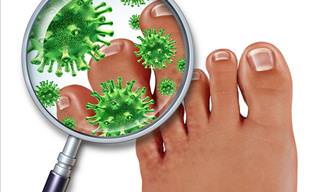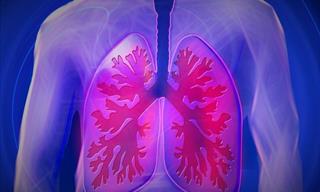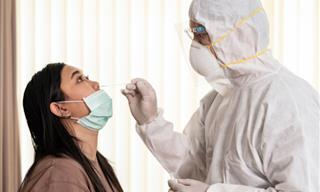The year 2020 hasn’t exactly begun on a positive note. The spread of the novel coronavirus, which originated in China, has been declared as a pandemic by the World Health Organization. The threat from the disease is undoubtedly causing widespread panic everywhere.
Even though the novel coronavirus is on the news every minute of the day right now, there are several misconceptions and unknown facts about the virus among the common folk. The first misconception that must be cleared is that the coronavirus is not called COVID-19. In fact, COVID-19 (or 2019 novel coronavirus) is the name of the disease that is caused by the virus. It is that particular virus which has been labeled SARS-CoV-2 (severe acute respiratory syndrome coronavirus 2). Simply put, this is a new strain of the coronavirus.
Like most of us, you are likely to be keenly following regular updates about the spread of COVID-19. Here, we list down 8 little-known facts about the 2019 novel coronavirus outbreak - some important and some interesting - you should definitely know about.
1. Whistleblower scientist was killed by COVID-19

Image source - Mvolz/Wikimedia Commons
Are you aware of the name Li Wenliang? You should. He was the doctor who tried to sound a warning about the outbreak of COVID-19. An ophthalmologist, born in Beizhen, China, Li sent a message to a group of fellow doctors alerting them about a possible onset of an illness that closely resembled severe acute respiratory syndrome (SARS) in Wuhan, where he worked. It was meant to be a private message for his fellow doctors. However, a few days later, Li was summoned to the Public Security Bureau in Wuhan and was made to sign a statement where his warning was claimed as an unfounded and illegal rumor.
As was later found out, Li was one of the first people to recognize the outbreak of the 2019 novel coronavirus. Unfortunately, on Feb 7, 2020, Li died after contracting the very illness he had tried to alert his medical school classmates about. The young doctor was only 33 years old and the news of his death sparked a great upsurge of emotion in China. Li had, in fact, already become a hero before his death after word of his treatment by the authorities had emerged.
“We will not forget the doctor who spoke up about an illness that was called rumor,” one commenter posted in response to the hospital’s announcement of Li Wenliang’s death.
2. Is Corona Beer being hit by the coronavirus threat?

Corona beer, a popular lager brand in the US, has apparently been affected by the spread of the coronavirus. Since the name of the beer sounds like the virus, some reports have stated that consumers are mistakenly associating the brand name with the new coronavirus. A recent survey revealed that 38% of beer-drinking Americans would not buy Corona under any circumstances now. According to the survey, 16% of beer-drinking Americans were confused about whether or not Corona beer is related to the coronavirus.
However, the company has refuted these claims and has gone on record to say that its customers "understand there is no link between the virus and our business."
3. A simple face mask is unlikely to protect you from COVID-19

The coronavirus scare has led to a rapid rise in sales of face masks all over the world for obvious reasons. However, can a face mask protect you from COVID-19? There are certain models (like the N95) that are professional, tight-fitting respirators and do offer protection to health care workers since they care for infected patients.
Wearing lightweight disposable surgical masks, however, won’t do much good to the common public. Firstly, they don’t fit tightly. More importantly, they may let tiny infected droplets find their way into the nose, mouth, or eyes. Furthermore, the people who have the virus on their hands might end up touching their face under the mask and thus will be at risk of getting infected.
The disposable surgical masks will be good for people with respiratory illness, as that will reduce their chance of infecting others. Bear in mind, though, that stocking up on these masks will make it harder for sick patients and health care workers to get hold of them.
4. More than 70,000 people have already recovered from the COVID-19 virus

It has been about four months since COVID-19 first reared its dangerous head. While it isn’t wise to go into panic mode yet about this new epidemic, we cannot deny how dangerous it has already been.
At the time of writing, there have been a whopping 156,766 coronavirus cases from all over the world with 5,839 reported deaths. Every death by the virus is, of course, disheartening. However, one must also take note of the point that of the reported cases, 75,937 people have already recovered from the disease. This is a good sign and shows that the recovery chances of people being affected by the 2019 novel coronavirus are quite high. Thus, stay safe and also stay positive.
5. You can get diagnosed with COVID-19 even after surviving the first encounter

The scary part about the new coronavirus strain is that you might not be safe from it even after surviving the first encounter. Recently, a Japanese woman tested positive for coronavirus for a second time. Authorities have said that this is the first case like this in Japan.
The woman, who is in her 40s, works as a tour bus guide and is a resident of Osaka in western Japan. She first tested positive in January 2020 and was discharged from the hospital after recovering a few days later. Unfortunately, she got diagnosed with COVID-19 again.
Second positive test cases have been reported in China as well, and it remains to be seen if similar cases are found in other parts of the world.
6. China has announced a ban on its wild animal trade until the corona crisis is over

Scientists believe that the new strain of coronavirus originated in the wild animal markets in China. Bats are considered natural hosts of these viruses, while snakes and pangolins are also being suspected for the same. This has obviously pushed China’s live wild animal trade into the spotlight for all the wrong reasons. What made matters worse were visuals of unhealthy, suffering animals in these markets along with grim videos of bats being boiled alive in bowls of soup. This sparked widespread outrage on social media, as the images coincided with the virus spreading its tentacles all over the world.
In January 2020, the Chinese government announced a ban on the trade and consumption of live wild animals for food until the corona crisis is over. In fact, this temporary ban could become permanent if the outbreak of the disease continues.
7. Dettol surface cleanser not proven to kill 2019 coronavirus

In February 2020, a photo went viral on social media, showing the label on a bottle of Dettol anti-bacterial surface cleanser and how it can kill viruses such as the coronavirus. Interestingly, the bottle was apparently from 2019, making people believe that the new coronavirus observed in China is not new. A quick search will also show you that there are several Dettol products that mention they are “proven to kill…Human Coronavirus”.
While the images being shared are of genuine bottles of Dettol, one thing that people should remember is that the coronavirus spreading at the moment is known as the 2019 “novel” coronavirus or COVID-19. Furthermore, it has not yet been tested against Dettol products. Also note that 'coronavirus' is a broad category of viruses and includes the common cold, which is what the label was likely referring to.
Dettol has clearly stated in its website that: “2019 Novel Coronavirus (COVID-19) is a new strain of coronavirus. It is not yet available for commercial testing.”
8. The COVID-19 vaccine might still be more than a year away

“When will we get a vaccine?” – this is the question on almost every person’s lips today living in fear of the novel coronavirus. Scientists are currently working overtime to develop an effective vaccine for COVID-19. Compared to past epidemics, such as Ebola, the efforts this time seem to be much quicker. Different teams have already tested vaccine candidates in animals and preparations are being made to carry out small trials in people.
Moderna Therapeutics, a US-based biotechnology company, has started recruiting people already and is targeting to enroll 45 volunteers between the ages of 18 and 55 with the hope of launching a trial in April 2020. These are, however, phase one trails and will only be observing if the vaccine triggers an immune response and if there are any adverse effects. The subsequent phases will take longer, as they will involve thousands of volunteers and will closely look at the effectiveness of the vaccine.
A commercially available vaccine to protect people from the new coronavirus could thus take a year or 18 months at least, according to leading doctors. While that might seem like a long time away, let’s hope that the vaccine actually works and helps in stopping the spread of the deadly virus.
The 2019 novel coronavirus outbreak is real. There is no denying it. However, it wouldn’t be wise to go into panic mode with its threat or take it completely casually either. The best option is to follow the necessary precautions as advised by the authorities and try and stay safe as much as you can. The World Health Organization did issue a statement recently saying that “the novel coronavirus can be contained”. So, there are indeed reasons to remain positive.
These are tough times, undoubtedly. But as that famous saying goes: “This too shall pass”.
 Go to BabaMail
Go to BabaMail
































